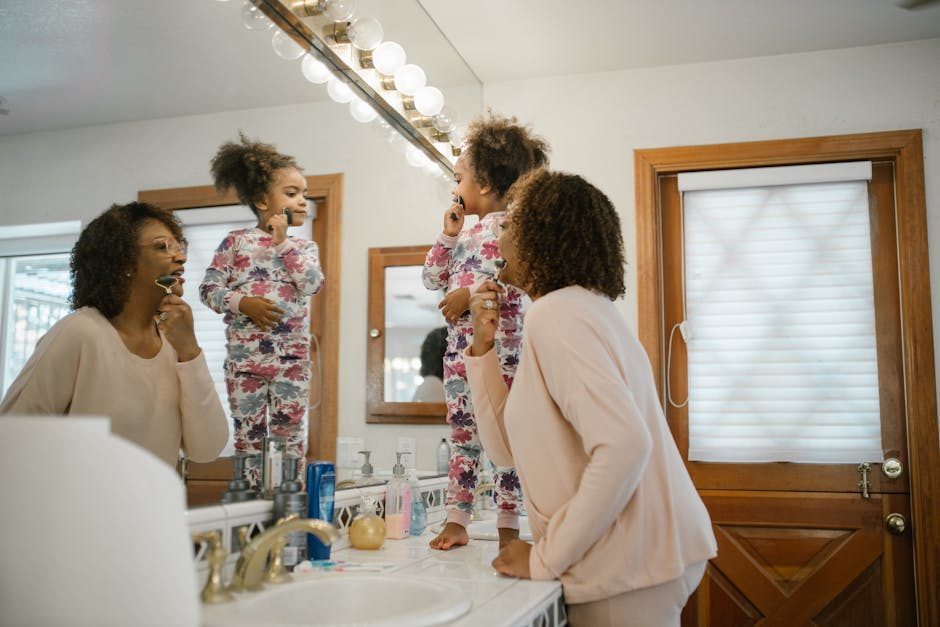Families, at their core, are intricate webs of relationships, experiences, and shared narratives. Woven into this tapestry are threads of ritual, patterns of behaviour that, often unspoken, shape the fabric of family life. Understanding the significance of family rituals in the context of parenting and family dynamics offers a deeper appreciation for their profound impact on individual growth and the overall well-being of the unit.
Family rituals, encompassing everything from weekly game nights to holiday traditions, act as powerful signifiers of belonging and connection. They provide a sense of structure and predictability in a world that often feels chaotic. This predictability is vital for children, fostering a sense of security and stability. When children understand the anticipated sequence of events within a ritual, they develop a sense of comfort and familiarity, reducing anxiety and promoting emotional regulation.
Beyond the foundational role of providing stability, family rituals cultivate crucial social and emotional skills. Engaging in shared activities, like baking cookies for a holiday celebration or participating in a weekly family dinner, teaches children crucial social skills such as cooperation, communication, and conflict resolution. These experiences offer opportunities for active listening, empathy, and navigating different perspectives all of which contribute to the development of well-rounded individuals.
Consider the role of communication in rituals. Family meals, for instance, can be a space for open conversation, allowing family members to connect, share experiences, and express their emotions. This open dialogue, a cornerstone of meaningful rituals, strengthens familial bonds. These conversations aren’t merely about the mundane; they offer a platform for discussing important topics, from expressing concerns to celebrating achievements. This dynamic exchange of ideas is crucial for children’s development, enabling them to articulate their needs and cultivate strong relationships.
Furthermore, family rituals play a critical role in transmitting values and beliefs. Through the acts and expressions embedded within a ritual, families instill important principles. A holiday celebration focused on gratitude, for example, can nurture a sense of appreciation and generosity within the family. Similarly, traditions focused on community service or volunteerism can cultivate compassion and empathy. In these ways, rituals become powerful vehicles for imparting values, shaping the moral compass of the next generation.
However, the significance of rituals isn’t solely about the explicit teaching; it extends to the implicit values communicated. The way a family interacts during a ritual with patience, kindness, or impatience sets a tone. These subtle cues influence children’s behaviour and social skills. Observing how adults handle disagreements, how they express affection, or how they show respect for others all have a profound impact on a child’s emotional intelligence and interpersonal relationships.
The impact of family rituals extends beyond the immediate family. These practices can build stronger communities. By fostering a sense of belonging and shared experience, rituals can encourage children to participate in activities beyond the home. The annual neighbourhood block party, for instance, strengthens connections within a community, promoting a sense of shared responsibility and collective well-being.
A vital aspect of crafting effective family rituals is understanding that one size does not fit all. Flexibility and adaptability are key to the success of rituals. Recognising individual differences and the evolving needs of family members is essential. As children grow older, their involvement and contribution to rituals should evolve to reflect their growing maturity. A rigid adherence to old traditions without accommodating these shifts can lead to disengagement and resentment.
Moreover, the emotional intelligence of adults playing a central role in the ritual is a crucial factor. Encouraging flexibility and adaptability in oneself and one’s children, promoting an attitude of acceptance for the natural ebb and flow of family life, is equally important. If conflicts or disappointments arise, addressing these openly and honestly is critical. This can teach children valuable problem-solving skills and promote a more resilient family unit. The approach must respect the individuality of all members, acknowledging the changing desires and needs of each family member.
In conclusion, family rituals are far more than just routines; they are powerful tools for cultivating connection, stability, and growth within a family unit. They provide a framework for transmitting values, developing social skills, and fostering emotional intelligence. By understanding the significance and adapting the practices within a family’s unique context, families can harness the transformative power of ritual to build stronger bonds and create a lasting legacy of connection. Rituals, woven into the tapestry of family life, nurture a sense of belonging, offering a constant beacon of stability in the often-tumultuous journey of family growth.
